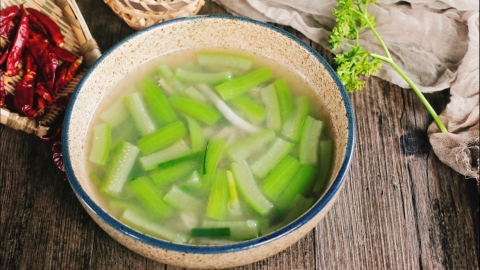Can pregnant women eat luffa during the early stages of pregnancy?
Generally, pregnant women can eat luffa (sponge gourd) during the early stages of pregnancy, but excessive consumption is not recommended. The detailed explanation is as follows:

Luffa is rich in vitamin B6, vitamin C, potassium, and dietary fiber. Among these, vitamin B6 can help alleviate common nausea and vomiting during early pregnancy. Vitamin C promotes collagen synthesis, aiding the development of the fetal tissues and organs. Potassium helps maintain the body's electrolyte balance and can reduce swelling during early pregnancy. Luffa's high water content and soft texture make it easy to digest and absorb, while its dietary fiber can promote intestinal motility and improve constipation caused by hormonal changes in early pregnancy. Additionally, its mild flavor is less likely to irritate a sensitive digestive system. Consuming luffa by steaming or making it into soup can replenish nutrients lost due to morning sickness, help pregnant women with poor appetite regulate their diet, and provide various minerals that support the development of the fetal nervous system.
Excessive consumption of luffa may cause gastrointestinal discomfort; therefore, moderate intake is advised. Pregnant women should maintain a balanced diet and obtain diverse nutrients to meet the demands of pregnancy. When consuming any food, attention should be paid to food hygiene, avoiding raw or undercooked foods to reduce the risk of food poisoning.










